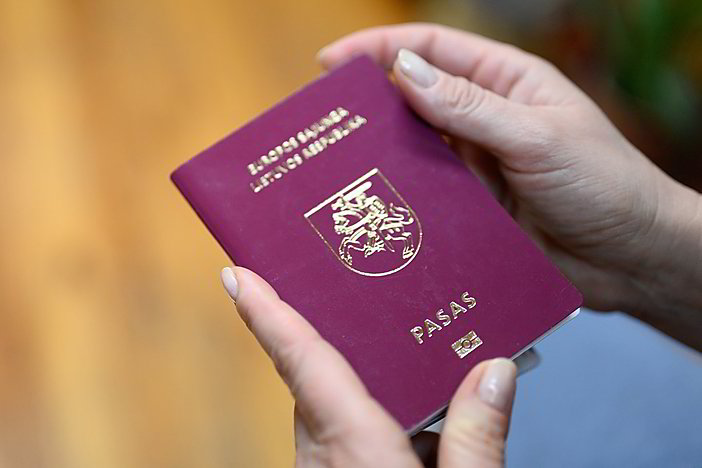Historically, Lithuania’s electricity grid operates synchronously with the IPS/UPS system, which connects the energy systems of Belarus, Russia, Estonia, Latvia, and Lithuania in the so-called BRELL ring. The BRELL Ring is based on the BRELL agreement between these 5 countries, which was signed in 1998.
The agreement provides for parallel operation of the energy systems by the grid operators of these countries (LITGRID in Lithuania) via 330 kV, 500 kV, and 750 kV electricity grids. The agreement also provides for the frequency of the power system to be centrally managed and coordinated by a dispatching centre in Moscow.
Although this agreement has not, to our knowledge, been used as a tool of political pressure and the BRELL countries’ electricity grids have been operating synchronously successfully for more than 20 years, threats have been made.
At the end of June, Moscow threatened that in response to Lithuania’s restrictions on the transit of some goods to Kaliningrad, it could disconnect Lithuania from the BRELL ring. This did not happen, as the isolated operation of the Kaliningrad system had to be cancelled. Kaliningrad, which receives its electricity via Lithuania, is not yet ready for this.
But Lithuania is ready - last December, LITGRID and the Polish electricity transmission system operator PSE carried out a test which, for the first time in history, allowed part of the Lithuanian electricity system to operate in synchronous operation with the Polish, and thus continental European, synchronous area.
According to energy experts and the grid operator, even if Lithuania were disconnected from the IPS/UPS system, the change would be minimal. Litgrid would only feel the disconnection due to disruptions in primary frequency control. However, the Lithuanian electricity grid would be able to operate in its own mode on the same day, ensuring immediate synchronisation with Poland.
In September this year, Lithuania will carry out an even more serious test of isolated operation. For the first time, the entire electricity system will be temporarily disconnected from the IPS/UPS synchronous zone and operate in island mode.
This test and the 200 megawatts of storage to be installed by the end of the year are the most important tasks for LITGRID this year. And, of course, green electricity. Lithuania is embarking on rapidly developing renewable energy sources. This should resolve price issues and market participants are expecting a favourable attitude towards the development of renewable energy facilities from the state authorities and the companies they manage - the prompt removal of the 2 GW “ceiling” for solar projects, the elimination of excessive requirements for permits, etc.
If it could, the Kremlin would probably use the electricity system it controls from its control room in Moscow to blackmail, as it once did with the Druzhba oil pipeline, which had to be closed indefinitely for repairs after the sale of Mažeikių Nafta to our Polish neighbours.
The long history and the events of recent days clearly show that for Russia and Belarus, the fair enactment of contracts is an incomprehensible concept.
The BRELL contract is not public
Be that as it may, it is interesting to see how such a step by Russia, if taken, could be viewed in legal terms.
Although the BRELL agreement itself is not available in the public domain, other international treaties that would apply in this case are relevant to this issue. Firstly, the 1994 Energy Charter Treaty (ratified by Lithuania in 1998) would be relevant. It lays down the framework for long-term cooperation in the energy sector and provides that each party to the treaty must work to reduce market distortions and barriers to competition in the energy sector.
Belarus and Russia have signed the agreement but never ratified the charter.
Another important document that would be relevant is the 1994 “Partnership Agreement”, signed by the EU, its member states, and Russia, confirming compliance with the objectives and principles set out in the Charter Treaty.
However, the same problem remains in this case: Russia has not ratified the Charter Treaty. It would therefore be difficult to apply its provisions directly to the dispute between the parties on the disconnection from BRELL.
In 1993, the governments of Lithuania and Russia concluded an Agreement on Trade and Economic Relations (entered into force in 1995) in order to develop and strengthen trade and economic relations.
Under this agreement, the parties undertook, inter alia, to seek to create maximum opportunities for the harmonious and comprehensive development of trade and economic relations between the two countries. They also agreed not to impose special restrictions or requirements on imports and/or exports of goods and services covered by the provisions of this agreement. In particular, those which are not applied in similar situations to equivalent domestically produced goods and services or to goods produced in third countries.
To the best of our knowledge, this agreement has not been terminated and is de jure in force. However, most of it (Articles 2, 3, 4, 6 and 7) has been superseded by the relevant provisions of the 1994 Partnership and Cooperation Agreement. Therefore, again, if Lithuania considers that the disconnection from BRELL is a de facto restriction of trade and economic relations between the two countries, this issue would not be dealt with on the basis of the agreement.
In short, our legal possibilities to challenge Lithuania’s disconnection from the BRELL ring are limited. Although more detailed legal tools are probably contained in the BRELL agreement, Russia would likely find ways to override it as well. Thus, it seems best to concentrate on synchronising the electricity grid as quickly as possible with continental Europe and legally disconnecting it from the “Russian” system.
About COBALT:
COBALT is one of the largest law firms in the Baltic States. More than 200 attorneys provide comprehensive services to local, regional and international corporations, foundations, credit institutions, and businesses, as well as to individuals in all areas of business law. The firm has won the title of “Best Law Firm in the Baltics” seven times. The most prestigious law firm directories Chambers Global, Chambers Europe, Legal 500, IFLR 1000, and others annually list COBALT among the best law firms in the region.


